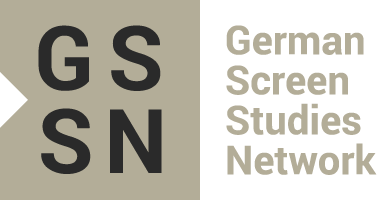Two-day workshop organised by Carla Steinbrecher (University of St Andrews) and Anna McEwan (University of Glasgow) as part of the German Screen Studies Network
University of St Andrews, Friday 10th November–Sunday 12th November 2023
In November 2023, the workshop “Screening Politics—Film Festivals, Archives and Cinematic Exhibition in the Cold War” organised with the GSSN and the financial support of the DAAD brought participants from the UK, Germany, Austria, Italy, France and Israel to St Andrews, both in person and online.
The workshop was brilliantly kicked off by film historian Andreas Kötzing with a keynote on how a photo from a DEFA feature film production could turn into the iconic, internationally known photo of the Reichstag fire of 1933.
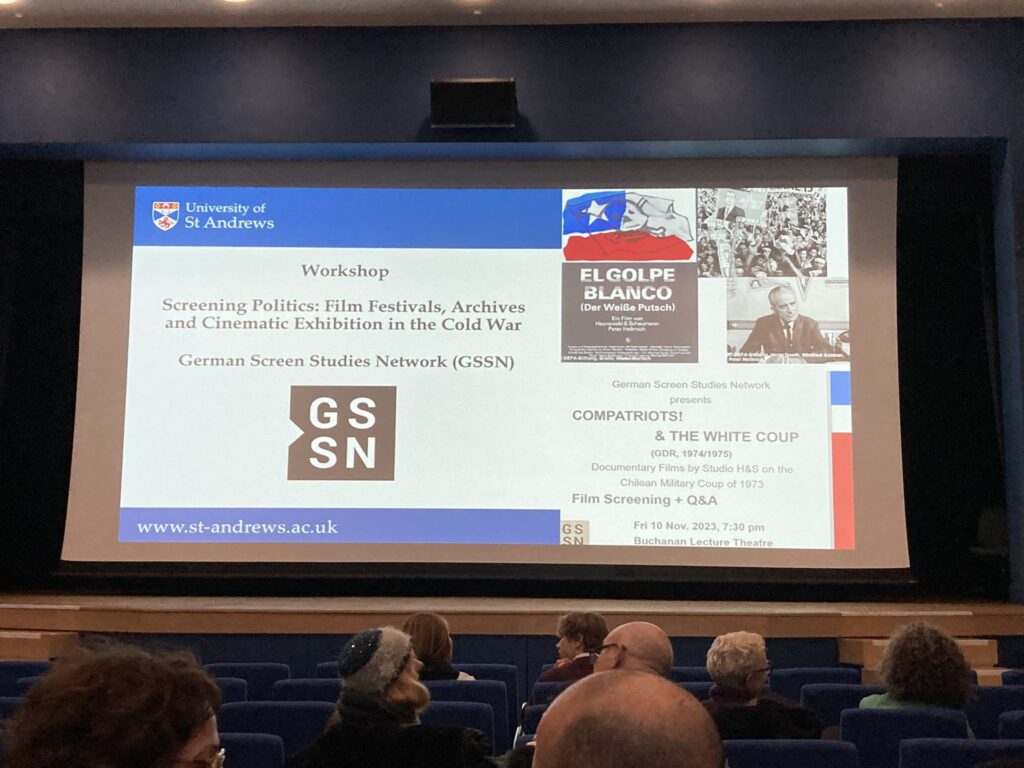
The workshop included an evening film screening of two East German documentaries on Chile, COMPATRIOTS! and THE WHITE COUP by Studio H&S. The film screening took place on the occasion of the 50th anniversary of the Chilean military coup in 1973, the GSSN was able to screen the English versions of COMPATRIOTS! and THE WHITE COUP by Studio H&S.
Thanks to the support of the DEFA-Stiftung, GSSN was able to present the English versions of the films which were written by the British journalist John Scott Peet who lived in the GDR since 1950. The production of English versions demonstrates Studio H&S’s aim to show these films to international audiences.
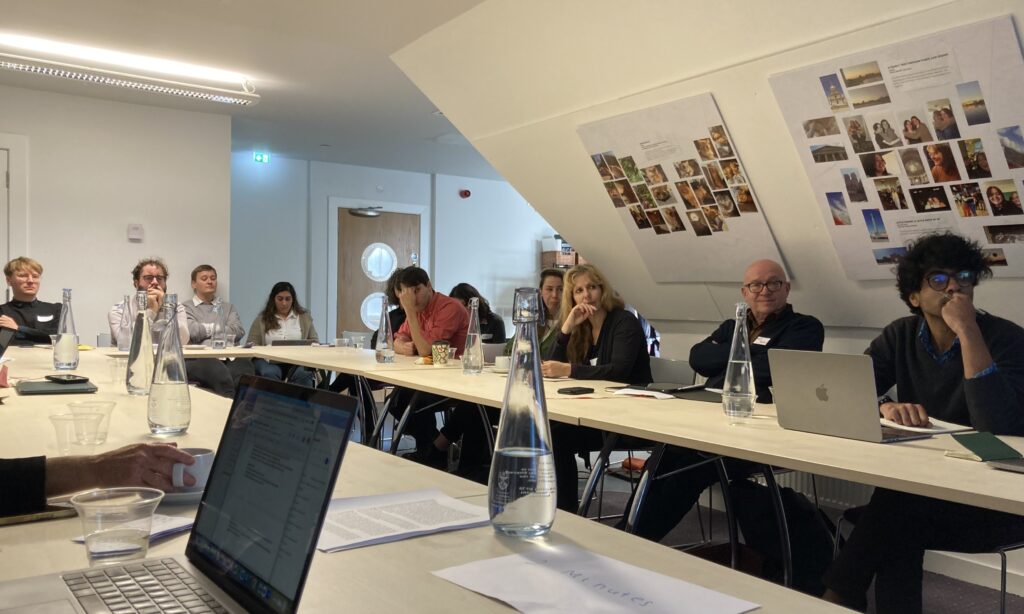
The programme on day two saw presentations on topics ranging from the use of DEFA film in foreign cultural diplomacy, over the history of European film festivals and films as forms of political intervention, solidarity and gender activism.
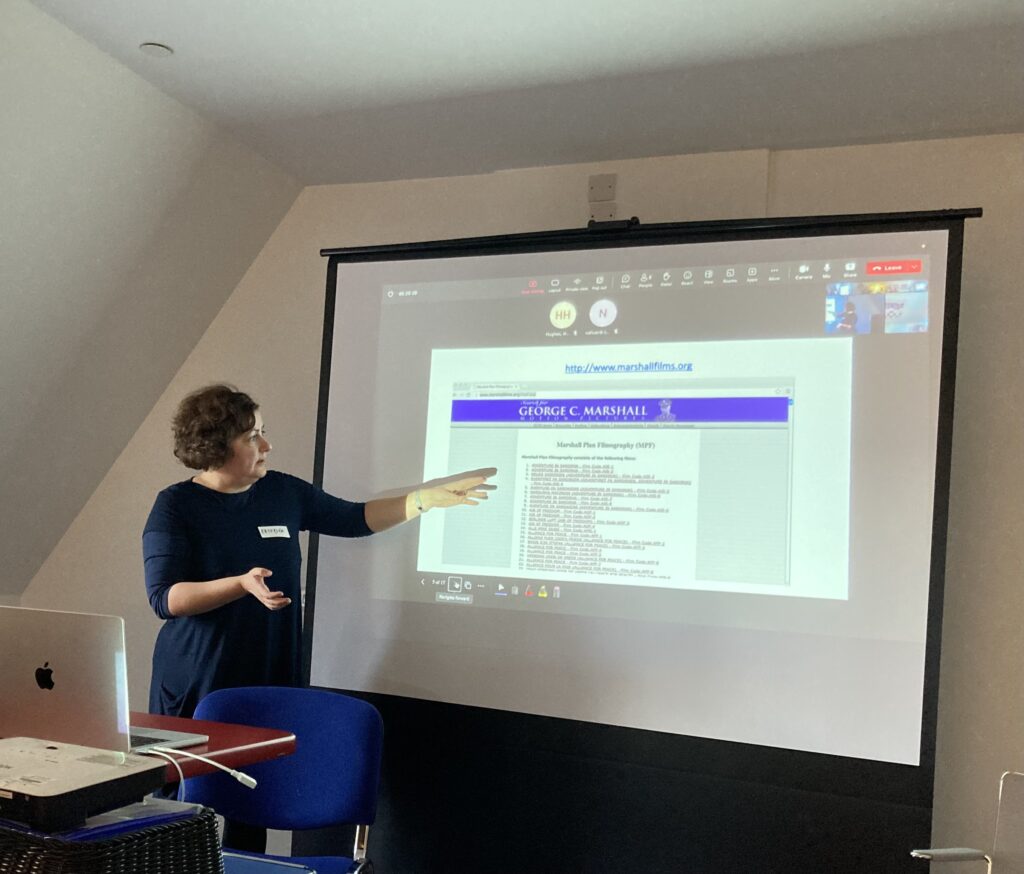
Katerina Loukopoulou (Middlesex University London) contributed a special screening of Marshall Plan films on Germany and Greece.
Katerina has been investigating for several years from a comparative angle since 2016. In 2018, she published her first results in “’A Campaign of Truth’: Marshall Plan Films in Greece” as part of the volume Cinema’s military industrial complex, Wasson, H., & Grieveson, L. (eds) (University of California Press).
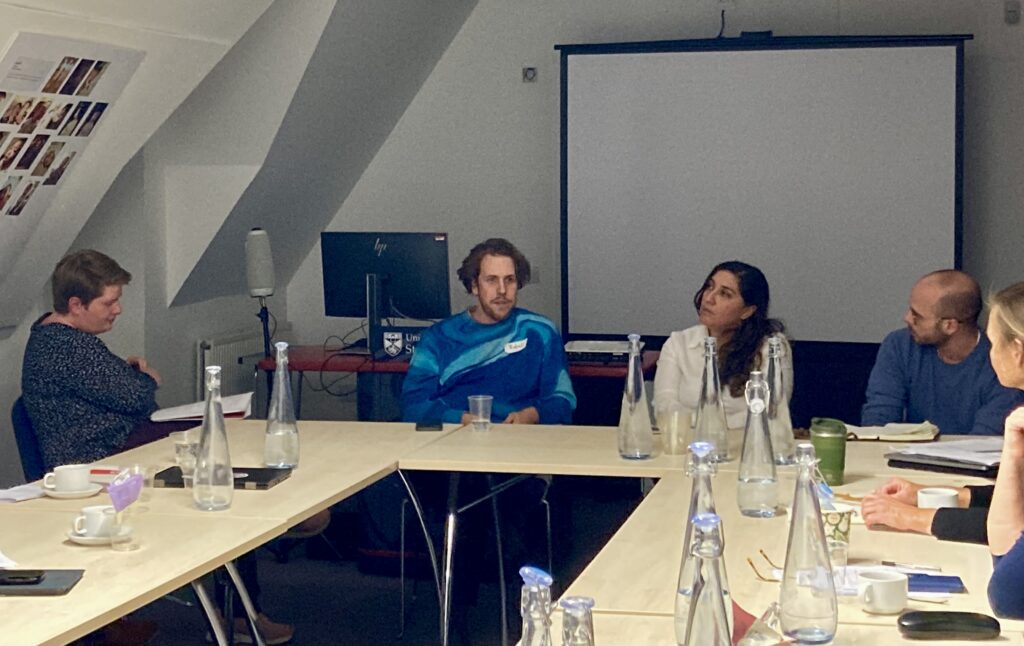
The workshop was concluded by an outstanding roundtable discussion on past, present and futures of the film festival. The roundtable was chaired by Elizabeth Ward whose current EU-funded research project examines the use of East German cultural diplomacy at the Berlin, Venice and Cannes film festivals. She was joined by Andrea Gelardi (University of Bari ‘Aldo Moro’ and NYU Florence) who is currently workin on the ‘Regional Archipelago Project’, mapping and analyzing the programming practices, social impact and sustainability level of the regional network of film festivals in the Apulia region. Elizabeth was further joined by Maria Fernanda Miño Puga (University of St Andrews) who had previously contributed a well-researched presentation on contemporary Ecuadorian film festivals. The roundtable discussion was also joined by Rafael Dernbach who has most recently curated a long night of dreaming about the future of intelligence at the Locarno Film Festival. Borrowing Brian Eno’s term, Rafael proposed a shift from “genius” to “scenius”, from viewing film festivals as celebration of artistic genius to perceiving them as sites of collective encounter, conversation and knowledge creation. The roundtable discussion was an illuminating discussion of past, present and future of the film festival as participative spaces of conversation, (film) history in the making as well as political soft power.
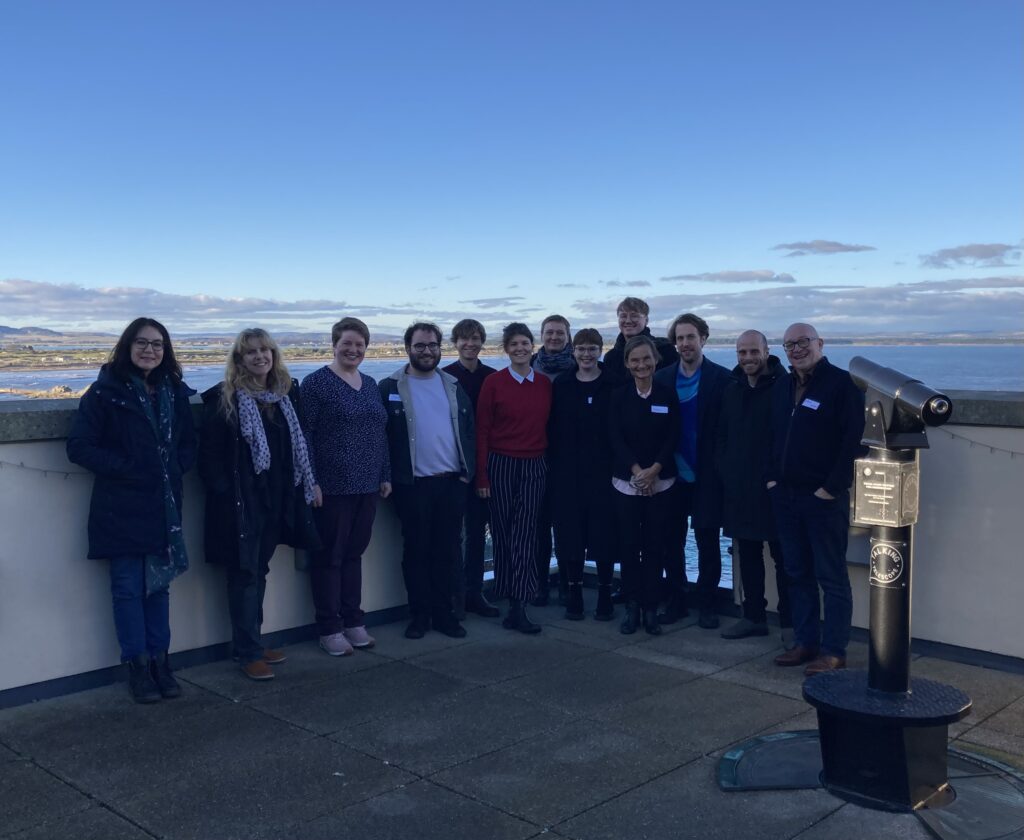
The German Screen Studies Network thanks all participants for their participation and the DAAD for their generous sponsorship, and hopes to welcome film scholars to St Andrews again soon.
